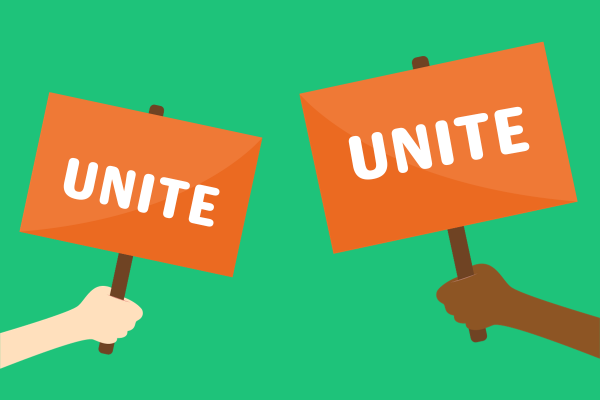This year, the theme for 16 Days of Activism is “UNITE! Invest to prevent violence against women and girls”. We will be joining voices from across the VAWG sector, calling on decision-makers to invest in a range of responses that make survivors safer, and give them the freedom to rebuild their lives.
We know there is no silver bullet when it comes to ending violence against women and girls: we need a whole spectrum of responses. Refuges and other forms of survivor support form the bedrock of that provision, but we also know that lasting change can’t be made without addressing its cause: perpetrators.
At Respect, we know the response to people using harm can’t be a “one-size-fits-all” situation. As a group, perpetrators are as diverse as our population, so meaningful opportunities to change will look different for different people. The types of behaviours used, and the pattern, nature and frequency of abuse can vary drastically between and within individuals over time. An intervention that may have been appropriate for someone five years ago, might not be the right one now. Other factors like culture, neurodiversity and language barriers also affect how perpetrators engage with interventions. It’s vital that decision-makers fund a range of responses that account for all these differences, so perpetrators have the best chance of engaging with an intervention, and we have the best chance of making survivors - including children - safer.
That’s where we come in. We develop, and support partners and members to deliver a whole range of responses, starting with prevention and education, and spanning the whole range of perpetration. At the heart of every one of these responses, is the survivor, or survivors. Their safety and wellbeing is the primary aim of any quality perpetrator intervention, and we ensure that any intervention we develop or accredit has parallel, separate survivor support, to ensure they get the help they need to recover.
Over the course of the 16 Days of Activism, we’ll be introducing you to some of the people behind these unique responses to perpetration, and you’ll get an insight into the innovative, expert work going on inside Respect, in our partnerships, and in our accredited member services.
Dating Detox
The Dating Detox Toolkit is a toolkit for practitioners to use with young people aged between 11 and 18 who are abusive, or at risk of being abusive, in intimate relationships.
Visit the Dating Detox webpage for more details and to find information about training.
Safe & Together
The Safe & Together model is a training programme designed to help child protection professionals improve their response to domestic abuse.
Visit the Safe & Together webpage for more information about the model and its implementation.
Respect Young People's Programme
The Respect Young People’s Programme (RYPP) is an intervention for families where children or young people aged between 8 and 18 are abusive or violent towards the people close to them, particularly their parents or carers.
Find out more about our work with young people, including RYPP and CAPVA.
Restart
Restart is a Drive Partnership pilot working to improve responses to perpetrators of domestic abuse in families supported by Children's Social Care.
Visit the Drive Partnership website to see the evaluation of year one of the Restart pilot.
Make a Change
Make a Change (MAC) is a community-wide, early response approach to people who are concerned that they are using harmful behaviours in their intimate, or previously intimate, relationships.
Visit the Make a Change website to find out more and sign up for training for professionals in Durham, Sunderland, Trafford or Merseyside.
Spotlight Programme - London Borough of Redbridge
The Spotlight Programme is a Respect-accredited service for people who have been abusive and are committed to changing their behaviours.
Find out more about the Spotlight Programme on the London Borough of Redbridge website. Or visit our accreditation pages to learn more about Respect accreditation.
The Drive Partnership National Systems Change
The Drive Partnership advocates for systems and policy change - to develop sustainable, national systems that respond more effectively to all perpetrators of domestic abuse.
Find out more about The Drive Partnership's National Systems Change programme on their website.
The Drive Project
The Drive Project is the Drive Partnership’s flagship intervention working with high-harm, high-risk and serial perpetrators of domestic abuse to prevent their abusive behaviour and protect victims.
Visit the Drive Partnership website for more information, including the University of Bristol evaluation of the project.
If you're concerned about your own behaviour or the behaviour of someone you're supporting, you can get in touch with the Respect Phoneline for help and advice.
Call free on 0808 802 4040 from 10am-5pm Monday to Friday, or visit their website (webchat is available on Thursdays from 2-4pm).
To see the difference these projects make, take a look at Respect's impact report for 2022/23.





